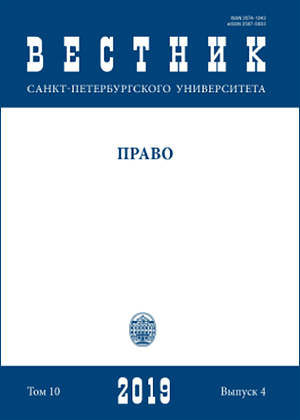Intelligibility of legal documents: legal fiction or presumption?
DOI:
https://doi.org/10.21638/spbu14.2019.401Abstract
The authors of the article focus on the problem of legal assessments and legal consequences of (not) understanding of legal documents (both normative and individual acts). Many legal norms recognize this circumstance as relevant for law, requiring the intelligibility of legal documents, though the application of its legal significance and consequences are not clear. In the researched Russian judicial practice more and more often citizens cite instances where, that in spite of provided access to а legal document, they could not follow the meaning because they could not understand them. A reason for this situation is the complicated language of legal texts, The authors conduct an analysis of Russian judicial decisions to conclude that the Russian courts usually do not acknowledge for legal purposes the fact of not understanding legal documents. This could lead to the conclusion that intelligibility of a legal document is a legal fiction recognized regardless of the facts. Nevertheless, some rare judicial judgments in Russian legal practice demonstrate that a lack of comprehension of the legal documents was acknowledged by the court. Based on this, the authors finally conclude that an understanding of legal documents can be treated as a presumption rather than fiction, but leave open the question of how this presumption can be rebutted.
Keywords:
intelligibility of legal texts, legal language, plain language, legal documents, legal communication, legal linguistics, legal fiction, legal presumption
Downloads
References
Downloads
Published
How to Cite
Issue
Section
License
Articles of "Vestnik of Saint Petersburg University. Law" are open access distributed under the terms of the License Agreement with Saint Petersburg State University, which permits to the authors unrestricted distribution and self-archiving free of charge.






